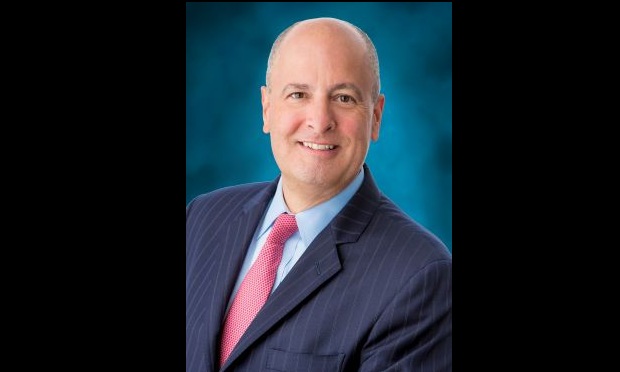If you want to sell your financial services practice in the foreseeable future, here are six key things to do, starting now:
1. Start early.
2. Develop a stable, loyal staff.
3. Delegate whatever you can to staff members.
4. Plan to hang around during the transition.
5. Review your income statement to improve profitability.
6. Do things to protect your family and practice today.
And now for the detail:
1. Start early:
Start today.
It will take three to five years to get everything squared away, so start now. Contact a business broker for tips on what to do to prepare your practice to sell. Like a realtor, the business broker will tell you what is needed to “spruce up” your practice, to make it more valuable and saleable.
Related: How to maximize the value of your agency
- Don’t put the practice on the market until it is ready to sell.
If you put your practice on the market early it will not have the value that it would have if you wait until everything is in order. On the other hand, start now to look for prospective buyers among other financial services practitioners.
- Clean up you books and records.
Generally a potential buyer will want free access to your accounting records. A good set of books and records will make it easier for the potential buyer to make a decision, and will also reflect well on you as a business owner.
- Don’t start new activities that won’t produce profit soon.
Activities that don’t produce a profit will drag down the price of your practice, eventually making your investment in them a loss.
- Get your personal finances in order.
Your practice is only as valuable as the buyer can afford to pay for it. It is quite possible that you will have to finance some of the selling price, taking back an installment note receivable from the buyer. Therefore, you must price it so it is affordable.
- Clearly separate distinct lines of business.
For example, if, in addition to your financial services practice, you developed a specialty to administer certain employee benefit plans, clearly separate the two activities and be prepared to sell them separately. If you own your real estate you may want to retain it and rent it to the buyer.
- Be prepared for an asset sale.
Buyers who purchase the stock of your corporation will not be able to deduct that cost until they sells the stock. But if they buy your equipment, they will be able to depreciate it. If they buy “goodwill,” (the price paid minus the value of the tangible assets purchased) they’ll also be to amortize it.
- Have a look at your offices, make sure they are presentable and look professional.
Have you upgraded to flat screen monitors, or are you still using those old cathode ray tubes?

2. Develop a stable, loyal staff:
A stable, loyal staff will have a tendency to stay with the practice, making the practice more valuable, smoothing transition, and increasing client retention. You can develop a more loyal staff in many ways:
-
-
Sponsor a qualified retirement plan.
-
Provide fringe benefits.
-
Provide professional training.
-
Consider an educational reimbursement arrangement.
-
Develop an incentive compensation package.
-
Consider non-compete agreements for key people.
-
Related: 5 expert tips on easing succession

3. Delegate whatever you can to staff members:
- By pushing work down you will develop your staff’s professional ability.
More client contact with the staff will make for an easier transition when you retire. It will make your staff more capable of a smooth transition.
- Limit yourself as much as possible to CEO duties.
If you have delegated as much as you can, your absence will not disturb work flow as much as it would if you have to be consulted for routine, day-to-day decisions.

4. Plan to hang around during the transition
Stay involved during the transition to new ownership, introducing the new owner to your clients. Your participation will smooth the transition for the new owner and improve client retention. By physically and formally “passing the torch” to the new owner, you will preserve the goodwill you have built up over the years.
In addition, if the sale price of the practice has contingencies for client retention or loss, it will improve the payout to you.
Related: Successful succession

5. Review your income statement to improve profitability
Specifically:
-
-
Focus on developing recurring engagements.
-
Focus on developing high-profit activities.
-
Consider terminating problem clients.
-
If you charge hourly fees analyze your realization (fees charged vs. write offs) and consider terminating low realization clients.
-
Diversify your client base to include both younger and older clients.
-
Improve profitability by automating functions.
-
Look into software that can provide higher level, higher value, output for your clients.
-
Dispose of obsolete inventory.
-
Trim staff if feasible.
-
Look at client demographics; clients in the accumulation phase are more valuable than clients in the distribution phase.
-
Identify or eliminate expenses that would disappear with your absence. For example: (i) high-value automobiles; (ii) a vacation condominium that is used for board of directors’ meetings; or (iii) high-cost professional seminars in resort areas.
-
Related: A personal account of succession planning

6. Do things to protect your family and practice today:
- Enter into a mutual assistance agreement with a colleague.
In the event of death or disability a financial services practice can evaporate quickly.
A mutual assistance agreement can keep the practice together, preserving the value for the disabled owner or surviving family. In a mutual assistance agreement the two of you would mutually agree to step in, in the event of death or disability, to keep the practice together until such time as the owner can return, or the practice is sold.
- Secure life insurance.
Should you pass away and should the practice be sold at a discount, or disappear completely, the life insurance can replace the lost value for your family.
- Secure disability income insurance.
Your most valuable asset may well be your ability to earn a living. Disability income insurance can replace some of the income should you become disabled.
Related: What's YOUR succession plan?
Want to continue reading?
Become a Free PropertyCasualty360 Digital Reader
Your access to unlimited PropertyCasualty360 content isn’t changing.
Once you are an ALM digital member, you’ll receive:
- Breaking insurance news and analysis, on-site and via our newsletters and custom alerts
- Weekly Insurance Speak podcast featuring exclusive interviews with industry leaders
- Educational webcasts, white papers, and ebooks from industry thought leaders
- Critical converage of the employee benefits and financial advisory markets on our other ALM sites, BenefitsPRO and ThinkAdvisor
Already have an account? Sign In Now
© 2025 ALM Global, LLC, All Rights Reserved. Request academic re-use from www.copyright.com. All other uses, submit a request to [email protected]. For more information visit Asset & Logo Licensing.








